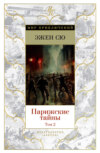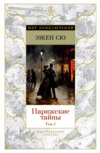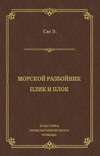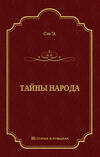Читать книгу: «The Carlovingian Coins; Or, The Daughters of Charlemagne»
TRANSLATOR'S PREFACE
The Age of Charlemagne is the watershed of the history of the present era. The rough barbarian flood that poured over Western Europe reaches in that age a turning point of which Charlemagne is eminently the incarnation. The primitive physical features of the barbarian begin to be blunted, or toned down by a new force that has lain latent in him, but that only then begins to step into activity – the spiritual, the intellectual powers. The Age of Charlemagne is the age of the first conflict between the intellectual and the brute in the principal branches of the races that occupied Europe. The conflict raged on a national scale, and it raged in each particular individual. The colossal stature, physical and mental, of Charlemagne himself typifies the epoch. Brute instincts of the most primitive and savage, intellectual aspirations of the loftiest are intermingled, each contends for supremacy – and alternately wins it, in the monarch, in his court and in his people.
The Carlovingian Coins; or, The Daughters of Charlemagne is the ninth of the brilliant series of historical novels written by Eugene Sue under the title, The Mysteries of the People; or, History of a Proletarian Family Across the Ages. The age and its people are portrayed in a charming and chaste narrative, that is fittingly and artistically brought to a close by a veritable epopee – the Frankish conquest of Brittany, and, as fittingly, serves to introduce the next epopee – the Northman's invasion of Gaul – dealt with in the following story, The Iron Arrow Head; or, The Buckler Maiden.
Daniel de Leon.
New York, May, 1905.
PART I.
AIX-LA-CHAPELLE
CHAPTER I.
AMAEL AND VORTIGERN
Towards the commencement of the month of November of the year 811, a numerous cavalcade was one afternoon wending its way to the city of Aix-la-Chapelle, the capital of the Empire of Charles the Great – an Empire that had been so rapidly increased by rapidly succeeding conquests over Germany, Saxony, Bavaria, Bohemia, Hungary, Italy and Spain, that Gaul, as formerly during the days of the Roman Emperors, was again but a province among the vast domains. The ambitious designs of Charles Martel had been realized. Childeric, the last scion of the Merovingian dynasty, had been got rid of. Martel's descendants took his seat, and now the Hammerer's grandson wielded the sceptre of Clovis over an immensely wider territory.
Eight or ten cavalry soldiers rode in advance of the cavalcade. A little apart from the smaller escort, four cavaliers ambled leisurely. Two of them wore brilliant armor after the German fashion. One of these was accompanied by a venerable old man of a martial and open countenance. His long beard, snow white as his hair that was half hidden under a fur cap, fell over his chest. He wore a Gallic blouse of grey wool, held around his waist by a belt, from which hung a long sword with an iron hilt. His ample hose of rough white fabric reached slightly below his knees and left exposed his tightly laced leather leggings, that ended in his boots whose heels were armed with spurs. The old man was Amael, who under the assumed Frankish name of Berthoald had, eighty years before, saved the life of Charles Martel at the battle of Poitiers against the Arabs, had declined the post offered him by Charles, as jailer of the last descendant of Clovis, and, finally, smitten by conscience, had renounced wealth and dignity under the Frankish enslavers of Gaul, and returned to his people and country of Brittany, or Armorica, as the Romans named it. Amael now touched his hundredth year. His great age and his somewhat portly stature notwithstanding, he still looked full of vigor. He handled with dexterity the black horse that he rode and whose spirit seemed no wise abated by the long road it had traveled. From time to time, Amael turned round upon his saddle in order to cast a look of paternal solicitude upon his grandson Vortigern, a lad of hardly eighteen years, who was accompanied by the other of the two Frankish warriors. The face of Vortigern, of exceptional beauty for a man, was framed in long chestnut ringlets, that, escaping from his scarlet coif, tumbled down below a chin that was as dainty as a woman's. His large blue eyes, fringed with lashes black as his bold arched eyebrows, had an air at once ingenuous and resolute. His red lips, shaded by the down of adolescence, revealed at every smile two rows of teeth white as enamel. A slightly aquiline nose, a fresh and pure complexion somewhat tanned by the sun, completed the harmonious make-up of the youth's charming visage. His clothes, made after the fashion of his grandfather's, differed from them only in a touch of elegance that bespoke a mother's hand, tenderly proud of her son's comely appearance. Accordingly, the blue blouse of the lad was ornamented around the neck, over the shoulders and at the extremities of the sleeves with embroideries of white wool, while a calfskin belt, from which hung a sword with polished hilt, encircled his supple waist. His linen hose half hid his deerskin leggings, that were tightly laced to his nervy limbs and rejoined his boots, made of tanned skin and equipped with large copper spurs that glistened like gold. Although his right arm was held in a scarf of some black material, Vortigern handled his horse with his left hand with as much ease as skill. For traveling companion he had a young warrior of agreeable mien, bold and mercurial, alert and frolicsome. The mobility of his face recalled in nothing the stolidity of the German. His name was Octave. Roman by birth, in appearance and character, his inexhaustible Southern wit often succeeded in unwrinkling the brow of his young companion. The latter, however, would soon again relapse into a sort of silent and somber revery. Thus for some time absorbed in sadness, he walked his horse slowly, when Octave broke in gaily in a tone of friendly reproach:
"By Bacchus! You still are preoccupied and silent."
"I am thinking of my mother," answered the youth, smothering a sigh. "I am thinking of my mother, of my sister and of my country."
"Come now; you should, on the contrary, chase away, such saddening thoughts. To the devil with sadness. Long live joy."
"Octave, gayness ill beseems a prisoner. I cannot share your light-heartedness."
"You are no prisoner, only a hostage. No bond binds you but your own word; prisoners, on the contrary, are led firmly pinioned to the slave market. Your grandfather and yourself ride freely, with us for your companions, and we are escorting you, not to a slave market, but to the palace of the Emperor Charles the Great, the mightiest monarch of the whole world. Finally, prisoners are disarmed; your grandfather as well as yourself carry your swords."
"Of what use are our swords now to us?" replied Vortigern with painful bitterness. "Brittany is vanquished."
"Such are the chances of war. You bravely did your duty as a soldier. You fought like a demon at the side of your grandfather. He was not wounded, and you only received a lance-thrust. By Mars, the valiant god of war, your blows were so heavy in the melee that you should have been hacked to pieces."
"We would not then have survived the disgrace of Armorica."
"There is no disgrace in being overcome when one has defended himself bravely – above all when the forces that one resisted and decimated, were the veteran bands of the great Charles."
"Not one of your Emperor's soldiers should have escaped."
"Not one?" merrily rejoined the young Roman. "What, not even myself? Not even I, who take such pains to be a pleasant traveling companion, and who tax my eloquence to entertain you? Verily, you are not at all grateful!"
"Octave, I do not hate you personally; I hate your race; they have, without provocation, carried war and desolation into my country."
"First of all, my young friend, I am not of the Frankish race. I am a Roman. Gladly do I relinquish to you those gross Germans, who are as savage as the bears of their forests. But, let it be said among ourselves, this war against Brittany was not without reason. Did not you Bretons, possessed of the very devil as you are, attack last year and exterminate the Frankish garrison posted at Vannes?"
"And by what right did Charles cause our frontiers to be invaded by his troops twenty-five years ago? His whim stood him instead of right."
The conversation between Vortigern and Octave was interrupted by the voice of Amael, who, turning in his saddle, called his grandson to him. The latter, anxious to hasten to his grandfather, and also yielding to an impulse of anger that the discussion with the young Roman had provoked, brusquely clapped his spurs to the flanks of his charger. The animal, thus suddenly urged, leaped forward so violently that in two or three bounds it would have left Amael behind, had not Vortigern, restraining his mount with a firm hand, made the animal rear on its haunches. The youth then resumed his walk abreast of his grandfather and the other Frankish warrior, who, turning to the old man, remarked:
"I do not marvel at the superiority of your Breton cavalry, when a lad of the age of your grandson, and despite the wound that must smart him, can handle his horse in such a manner. You yourself, for a centenarian, are as firm in your saddle as the lad himself. Horns of the devil!"
"The lad was barely five years old when his father and I used to place him on the back of the colts raised on our meadows," answered the old man. The recollection of those peaceful happy days now ended, cast a shadow of sorrow upon Amael's face. He remained silent for a moment. Thereupon, addressing Vortigern, he said:
"I called you to inquire whether your wound had ceased smarting."
"Grandfather, I hardly feel it any longer. If you allow me, I would free my arm of the embarrassing scarf."
"No; your wound might open again. No imprudence. Remember your mother, and also your sister and her husband, both of whom love you like a brother."
"Alas! Will I never see that mother, that sister, that brother whom I love so dearly?"
"Patience!" answered Amael in an undertone, so as not to be heard by the Frankish warrior at his side. "You may see Brittany again a good deal sooner than you expect – prudence and patience!"
"Truly?" inquired the youth impetuously. "Oh, grandfather, what happiness!"
The old man made a sign to Vortigern to control himself, and then proceeded aloud: "I am always afraid lest the fatigue of traveling inflame your wound anew. Fortunately, we must be approaching the end of our journey. Not so, Hildebrad?" he added, turning to the warrior.
"Before sunset we shall be at Aix-la-Chapelle," answered the Frank. "But for the hill that we are about to ascend, you could see the city at a distance."
"Return to your companion, my child," said Amael; "above all, place your arm back in its scarf, and be careful how you manage your horse. A too-sudden lurch might re-open the wound that is barely closed."
The young man obeyed and gently walked his horse back to Octave. Thanks to the mobility of the impressions of youth, Vortigern felt appeased and comforted by the words of his grandfather that had made him look forward to a speedy return to his family and country. The soothing thought was so visibly reflected in his candid features that Octave met him with the merry remark:
"What a magician that grandfather of yours must be! You rode off preoccupied and fretful, angrily burying your spurs into the flanks of your horse, who, poor animal, had done nothing to excite your wrath. Now, behold! You return as placid as a bishop astride of his mule."
"The magic of my grandfather has chased away my sadness. You speak truly, Octave."
"So much the better. I shall now be free, without fear of reviving your chagrin, to give a loose to the increasing joy that I feel at every step."
"Why does your joy increase at every step, my dear companion?"
"Because even the dullest horse becomes livelier and more spirited in the measure that he approaches the house where he knows that he will find provender."
"Octave, I did not know you for such a glutton!"
"In that case, my looks are deceptive, because a glutton, that am I – terribly gluttonous of those delicate dainties that are found only at court, and that constitute my provender."
"What!" exclaimed Vortigern ingenuously. "Is that great Emperor, whose name fills the world, surrounded by a court where nothing is thought of but dainties and gluttony?"
"Why, of course," answered Octave gravely and hardly able to refrain from laughing outright at the innocence of the young Breton. "Why, of course. And what is more, more so than any of the counts, of the dukes, of the men of learning, and of the bishops at court, does the Emperor himself lust after the dainties that I have in mind. He always keeps a room contiguous to his own full of them. Because in the stillness of the night – "
"He rises to eat cakes and, perhaps, even sweetmeats!" exclaimed the lad with disdain, while Octave, unable longer to contain himself, was laughing in his face. "I can think of nothing more unbecoming than guzzling on the part of one who governs empires!"
"What's to be done, Vortigern? Great princes must be pardoned for some pecadillos. Moreover, with them it is a family failing – the daughters of the Emperor – "
"His daughters also are given to this ugly passion for gormandizing?"
"Alas! They are no less gluttonous than their father. They have six or seven dainties of their own – most appetizing and most appetized."
"Oh, fie!" cried Vortigern. "Fie. Have they perhaps, also next to their bed-chambers, whole rooms stocked with dainties?"
"Calm your legitimate indignation, my boiling-over friend. Young girls can not allow themselves quite so much comfort. That's good enough for the Emperor Charles, who is no longer nimble on his legs. He is getting along in years. He has the gout in his left foot, and his girth is enormous."
"That is not to be wondered at. Bound is the stomach to protrude with such a gourmand!"
"You will understand that being so heavy on his feet, this mighty Emperor is not able, like his daughters, to snatch at a stray dainty on the wing, like birdies in an orchard, who nibble lovingly here at a red cherry, there at a blushing apple, yonder at a bunch of gilded grapes. No, no; with his august paunch and his gouty foot, the august Charles would be wholly unable to snap the dainties on the wing. The attention due to his empire would lose too much. Hence the Emperor keeps near at hand, within easy reach, a room full of dainties, where, at night, he finds his provender – "
"Octave!" exclaimed Vortigern, interrupting the young Roman with a haughty mien. "I do not wish to be trifled with. At first, I took your words seriously. The laughter that you are hardly able to repress, and that despite yourself breaks out at frequent intervals, shows me that you are trifling with me."
"Come, my brave lad, do not wax angry. I am not bantering. Only that, out of respect for the candor of your age, I have used a figure of speech to tell the truth. In short, the dainty that I, Charles, his daughters, and, by Venus! everybody at court lusts after more or less greedily is – love!"
"Love," echoed Vortigern, blushing and for the first time dropping his eyes before Octave; but as his uneasiness increased, he proceeded to inquire: "But, in order to enjoy love, the daughters of Charles are surely married?"
"Oh, innocence of the Golden Age! Oh, Armorican naïveness! Oh, Gallic chastity!" cried Octave. But noticing that the young Breton frowned at hearing his native land ridiculed, the Roman proceeded: "Far be it from me to jest about your brave country. I shall tell you without further circumlocution – I shall tell you that Charles' daughters are not married; for reasons that he has never cared to explain to anyone, he never has wanted them to have a husband."1
"Out of pride, no doubt!"
"Oh, oh, on that subject many things are said. The long and short of it is that he does not wish to part with them. He adores them, and, except he goes to war, he always has them near him during his journeys, along with his concubines – or, if you prefer the term, his 'dainties.' The word may be less shocking to your prudery. You must know that after having successively married and discarded his five wives, Desiderata, Hildegarde, Fustrade, Himiltrude and Luitgarde, the Emperor provided himself with an assortment of dainties, from which assortment I shall mention to you incidentally the juicy Mathalgarde, the sugary Gerswinthe, the tart Regina, the toothsome Adalinde – not to mention many other saints on this calendar of love. For you must know that the great Charles resembles the great Solomon not in wisdom only; he resembles him also in his love for seraglios, as the Arabs call them. But, by the way of the Emperor's daughters. Listen to a little tale. Imma, one of these young princesses, was a charming girl. One fine day she became smitten with Charles' archchaplain, named Eginhard. An archchaplain being, of course, arch-amorous, Imma received Eginhard every night secretly in her chamber – to discuss chapel affairs, I surmise. Now, then, it so happened that during one winter's night there fell so very much snow that the ground was all covered. A little before dawn, Eginhard takes his departure from his lady-love; but just as he is about to climb down from the window – an ordinary route with lovers – he beholds by the light of a superb full moon that the ground is one sheet of white snow. To himself he thinks: 'Imma and I are lost! I cannot get out without leaving the imprint of my steps in the snow' – "
"And what did he do?" asked Vortigern, more and more interested in the story that threw an undefined sense of uneasiness in his heart. "How did the two escape from their perilous plight, the poor lovers!"
"Imma, a robustious doxy, a girl both of head and resolution, descends by the window, bravely takes the archchaplain on her back, and, without tripping under the beloved burden, crosses a wide courtyard that separates her quarters from one of the corridors of the palace. Although weighted down by an archchaplain, Imma had such small feet that the traces left by them could not choose but keep suspicion away from Eginhard. Unfortunately, however, as you will discover when you arrive at Aix-la-Chapelle, the Emperor is possessed of a demon of curiosity, and has had his palace so constructed that, from a kind of terrace, contiguous to his own room and which dominates the rest of the buildings, he is able to discover as from an observatory, all who enter, go out, or cross the open space. Now, then, the Emperor, who frequently rises at night, saw, thanks to the brilliant moonlight, his daughter crossing the yard with the amorous fardel."
"Charles' anger must have been terrible!"
"Yes, terrible for an instant. Soon, however, no doubt greatly elated at having procreated a maid who was able to carry an archchaplain on her back, the august Emperor pardoned the guilty couple. After that they lived lovingly in peace and joy."
"And yet that archchaplain was a priest? What of the sanctity of the clergy!"
"Ho, ho! my young friend. The Emperor's daughters are far from failing in esteem for priests. Bertha, another of his daughters, desperately esteems Enghilbert, the handsome Abbot of St. Riquier. Fairness, nevertheless, compels me to admit that one of Bertha's sisters, named Adeltrude, esteemed with no less vehemence Count Lambert, one of the most intrepid officers of the imperial army. As to little Rothailde, another of the Emperor's daughters, she did not withhold her lively esteem from Romuald, who made his name glorious in our wars against Bohemia. I shall not speak of the other princesses. It is fully six months that I have been away from court. I would be afraid to do them injustice. Nevertheless, I am free to say that the Crosier and the Sword have generally contended with each other for the amorous tenderness of the daughters of Charles. Yet I must except Thetralde, the youngest of the set. She is still too much of a novice to esteem any one. She is barely fifteen. She is a flower, or rather, the bud of a flower that is about to blossom. I never have seen anything more charming. When I last departed from the court Thetralde gave promise of eclipsing all her sisters and nieces with the sweetness and freshness of her beauty, because, and I had forgotten this detail, my dear friend, the daughters of Charles' sons are brought up with his own daughters; and are no less charming than their aunts. You will see them all. Your admiration will have but to choose between Adelaid, Atula, Gonarade, Bertha or Theodora."
"What! Do all these young girls inhabit the Emperor's palace?"
"Certainly, without counting their servants, their governesses, their chambermaids, their readers, their singers and innumerable other women of their retinue. By Venus! My Adonis, there are more petticoats to be seen in the imperial palace than cuirasses or priests' gowns. The Emperor loves as much to be surrounded by women as by soldiers and abbots, without forgetting the learned men, the rhetoricians, the dialecticians, the instructors, the peripatetic pedagogues and the grammarians. The great Charles, as you must know, is as passionately fond of grammar as of love, war, the chase, or choir chants. In his grammarian's ardor, the Emperor invents words – "
"What!"
"Just as I am telling you. For instance: How do you call in the Gallic tongue the month in which we now are?"
"The month of November."
"So do we Italians, barbarians that we are! But the Emperor has changed all that by virtue of his own sovereign and grammatical will. His peoples, provided they can obey him without the words strangling them, are to say, instead of November, 'Herbismanoth'; instead of October, Windumnermanoth.'"
"Octave, you are trying to make merry at my expense."
"Instead of March, 'Lenzhimanoth'; instead of May – "
"Enough! enough! for pity's sake!" cried Vortigern. "Those barbarous names make me shiver. What! can there be throats in existence able to articulate such sounds?"
"My young friend, Frankish throats are capable of everything. I warn you, prepare your ears for the most uncouth concert of raucous, guttural, savage words that you ever heard, unless you have ever heard frogs croaking, tom-cats squalling, bulls bellowing, asses braying, stags belling and wolves howling – all at once! Excepting the Emperor himself and his family, who can somewhat handle the Roman and the Gallic languages, the only two languages, in short, that are human, you will hear nothing spoken but Frankish at that German court where everything is German, that is to say, barbarous; the language, the customs, the manners, the meals, the dress. In short, Aix-la-Chapelle is no longer in Gaul. It now lies in Germany absolutely."
"And yet Charles reigns over Gaul! – is not that enough of a disgrace for my country? The Emperor who governs us by no right other than conquest, is surrounded with a Frankish court, and with officers and generals of the same stock, who do not deign even to speak our tongue. Shame and disgrace to us!"
"There you are at it again, plunging anew into sadness. Vortigern! By Bacchus! Why do you not imitate my philosophy of indifference? Does, perchance, my race not descend from that haughty Roman stock that made the world to tremble only a few centuries ago? Have I not seen the throne of the Caesars occupied by hypocritical, ambitious, greedy and debauched Popes, with their black-gowned and tonsured militia? Have not the descendants of our haughty Roman Emperors gone in their imbecile idleness to vegetate in Constantinople, where they still indulge the dreams of Universal Empire? Have not the Catholic priests chased from their Olympus the charmful deities of our fathers? Have they not torn down, mutilated and ravished the temples, statues, altars – the master-works of the divine art of Rome and Greece? Go to, Vortigern, and follow my example! Instead of fretting over a ship-wrecked past, let's drink and forget! Let our fair mistresses be our Saints, and their couches our altars! Let our Eucharist be a flower-decked cup, and for liturgy, let's sing the amorous couplets of Tibullus, of Ovid, and of Horace. Yes, indeed, and take my advice: let's drink, love and enjoy life! That's truly to live! You will never again come across such an opportunity. The gods of joy are sending you to the Emperor's court."
"What do you mean?" queried Vortigern almost mechanically, and feeling his inexperienced sense, though not perverted, yet dazzled by the facile and sensuous philosophy of Octave. "What would you have one become in the midst of that court so strange to me, who have been brought up in our rustic Brittany?"
"Child that you are! A swarm of beautiful eyes will be focused upon you!"
"Octave, you are mocking again. Am I to be taken notice of? I, a field laborer's son? I, a poor Breton prisoner on parole?"
"And do you think your reputation for a bedevilled Breton goes for nothing? More than once have I heard told of the furious curiosity with which, about twenty-five years ago, the hostages taken to Aix-la-Chapelle, at the time of the first war against your country, inspired everyone at court. The most charming women wished to behold those indomitable Bretons whom only the great Charles had been able to vanquish. Their haughty and rude mien, the interest centred in their defeat, everything, down to their strange costumes, drew upon them the looks and the sympathy of the women, who, in Germany, are ever strongly prone to love. The fascinating enthusiasts of then are now become mothers and grandfathers. But, happily, they have daughters and grand-daughters who are fully able to appreciate you. I can assure you that I, who know the court and its ways, had I only your youth, your good looks, your wound, your graceful horsemanship and your renown as a Breton, would guarantee myself the lover of all those beauties, and that within a week."
Покупайте книги и получайте бонусы в Литрес, Читай-городе и Буквоеде.
Участвовать в бонусной программе




















